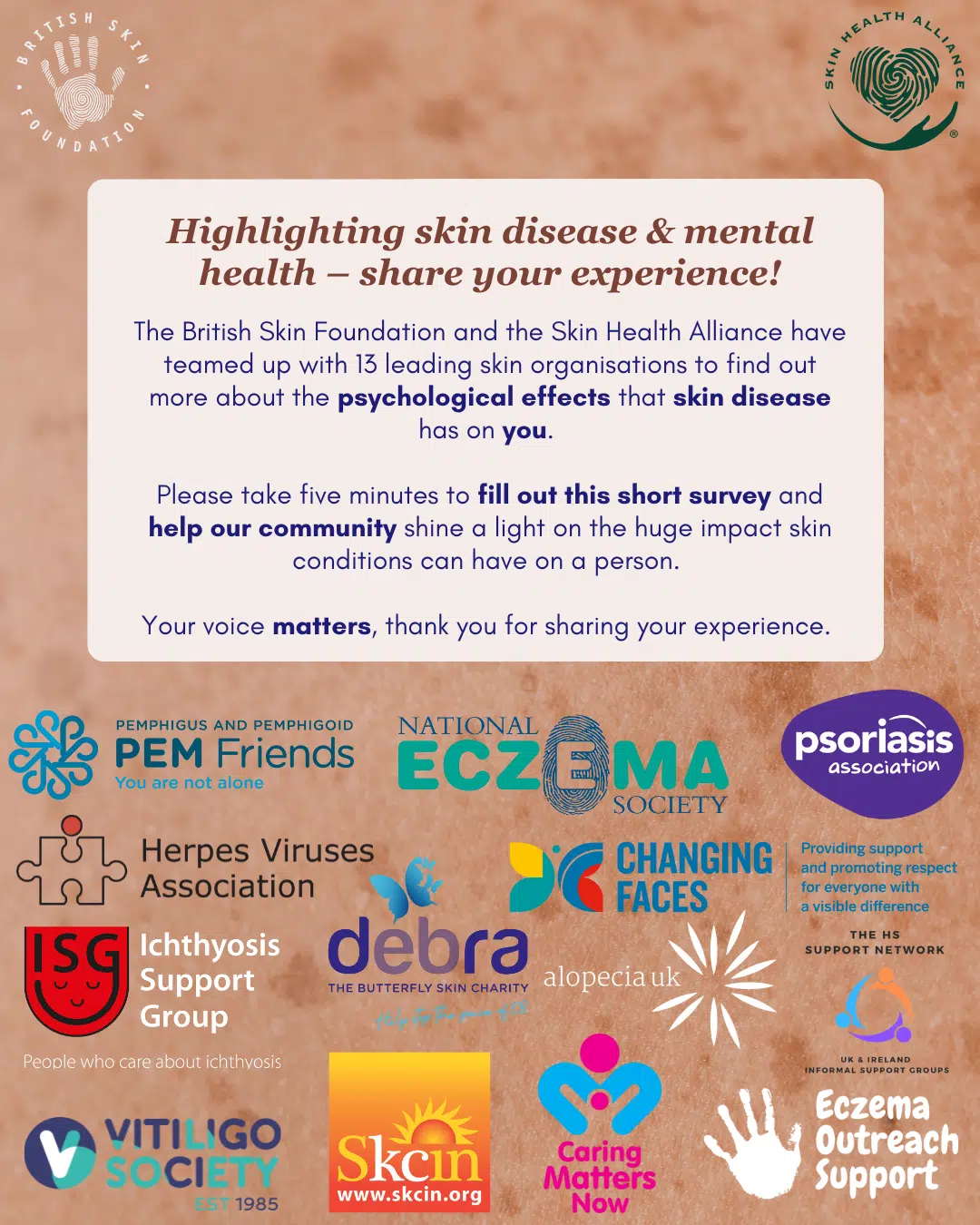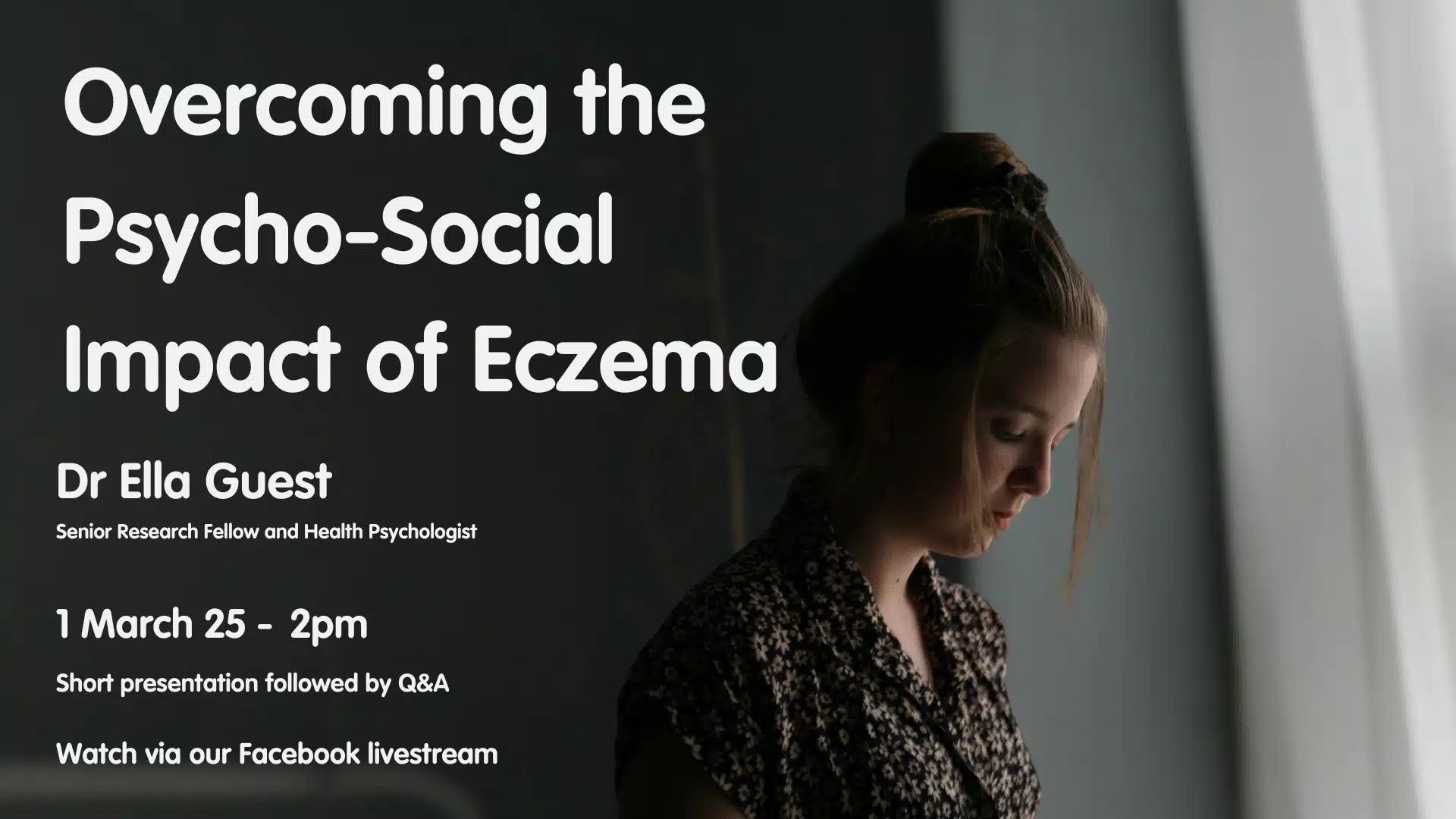Sometimes skin conditions, particularly those that are visible, can have a profound effect on mental health in addition to the physical symptoms caused.
Together with the British Skin Foundation, the Skin Health Alliance and 13 leading skin organisations, we want to better understand the impact of skin conditions on mental health. To do this, we have launched the Psychodermatology & Me survey.
The insights gathered will help to inform an upcoming campaign and help shape future support and research.
Share your experience todayIf you have a skin condition, we want to hear from you! Your voice matters.
The survey will take approximately five minutes to complete.

Living with Eczema or Psoriasis? We have been excited to support the ground-breaking BIOMAP research programme over the past five years. If you are interested to learn more about how research is driving personalised treatment approaches for eczema and psoriasis, this webinar is for you!
Join the free webinar on Tuesday 25 March, at 4:30pm.
Register for the webinarBIOMAP researchers across Europe have been investigating the causes of eczema and psoriasis, identifying new biomarkers that can show how these conditions develop over time. Our community is desperate for answers to these questions and it’s fantastic to see transformational research like this happening.
In this webinar you will find out what the BIOMAP researchers have discovered and the innovative research approaches they have developed. It’s free to take part in the webinar, which is intended for people with eczema and psoriasis.
Not to be missed! Register for free today.

On Saturday 1 March, we’re thrilled to host a talk by Dr Ella Guest on the Psycho-Social Impact of Eczema. Attend in person in Guildford, or join us virtually via our live-stream on Facebook – both are completely free!
After 10 years based in Camden, in north London, National Eczema Society has moved south of the river Thames to offices near London Bridge. Our new address is: 82 Tanner Street, London SE1 3GN.
Our new office is in a shared workspace called Canopi, and we’re now working alongside many other charities and social sector organisations who are also based here. This is more efficient and flexible office space for the Society and offers new opportunities to network and collaborate with other charities.

We’re celebrating the Society’s 50th anniversary in 2025!
It’s an opportunity to reflect on what we’ve achieved and also look forward to creating a better eczema future. National Eczema Society has supported countless people suffering with eczema over the past 50 years, and used our collective voice to campaign for better care. Though much more still needs to be done to improve the lives of people, and their families, living with eczema.
Eczema is a complex medical condition involving our genetics, immune system, environment and skin barrier. Currently, there is no cure for eczema. Until there is, we will work tirelessly to support research to find the answers we desperately need.
Through our determination, we are excited to launch our innovative eczema research programme. With your help, we want to fund ground-breaking, research projects investigating the underlying causes of eczema, explore new approaches to treatment, and, above all, improve the quality of life for everyone living with eczema.
Our charity relies on donations from wonderful supporters like you. By donating to our Christmas appeal, you will help us fund medical advances to make life better for everyone in our eczema community.
Thank you, and very best wishes of the season.
Andrew Proctor, Chief Executive
Buying National Eczema Society Christmas cards is a great way to raise awareness of eczema, as well as much-needed funds for the charity.
We have a wide selection of designs and they’re easy to buy on ebay.
Just search for ‘National Eczema Society’ and you’ll find them! Thank you for your support.
We are very grateful to the Society’s wonderful West Surrey and NE Hampshire Volunteer Group, which organises these card sales.
